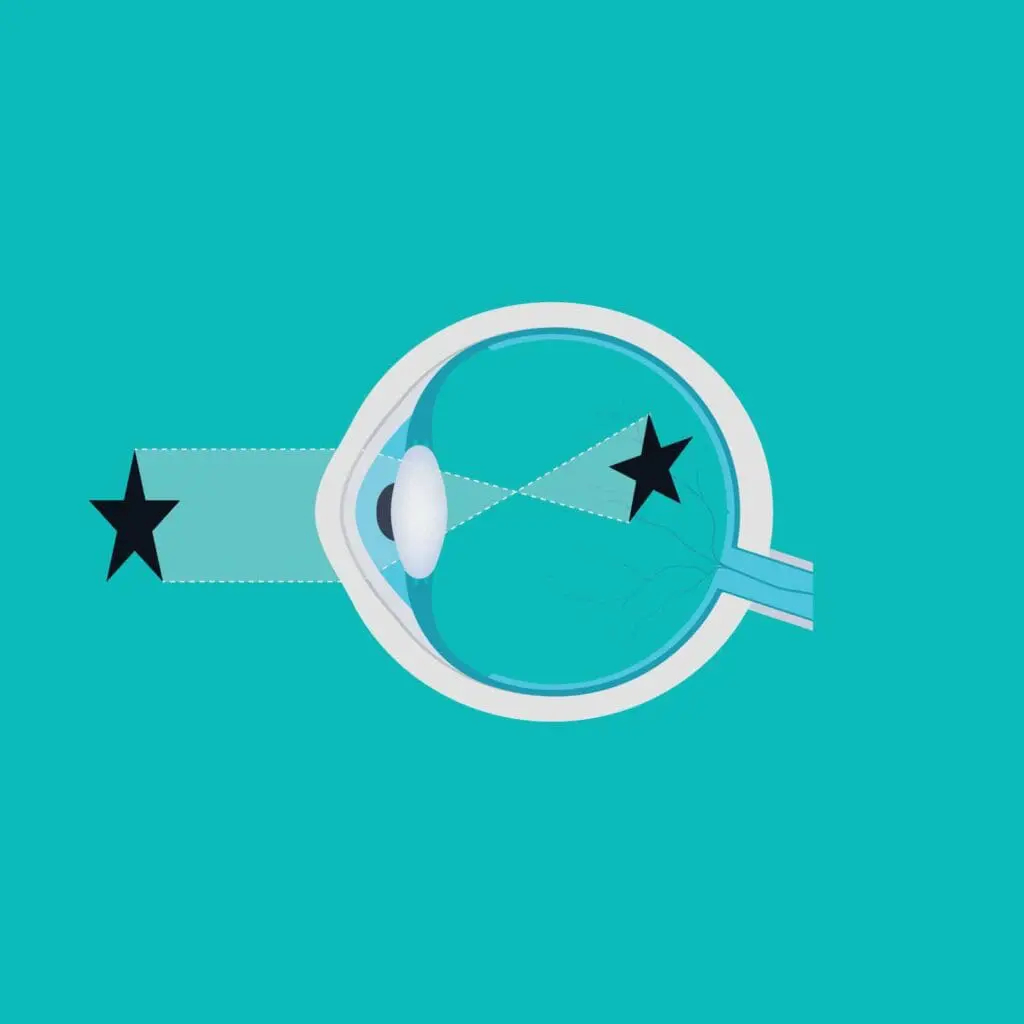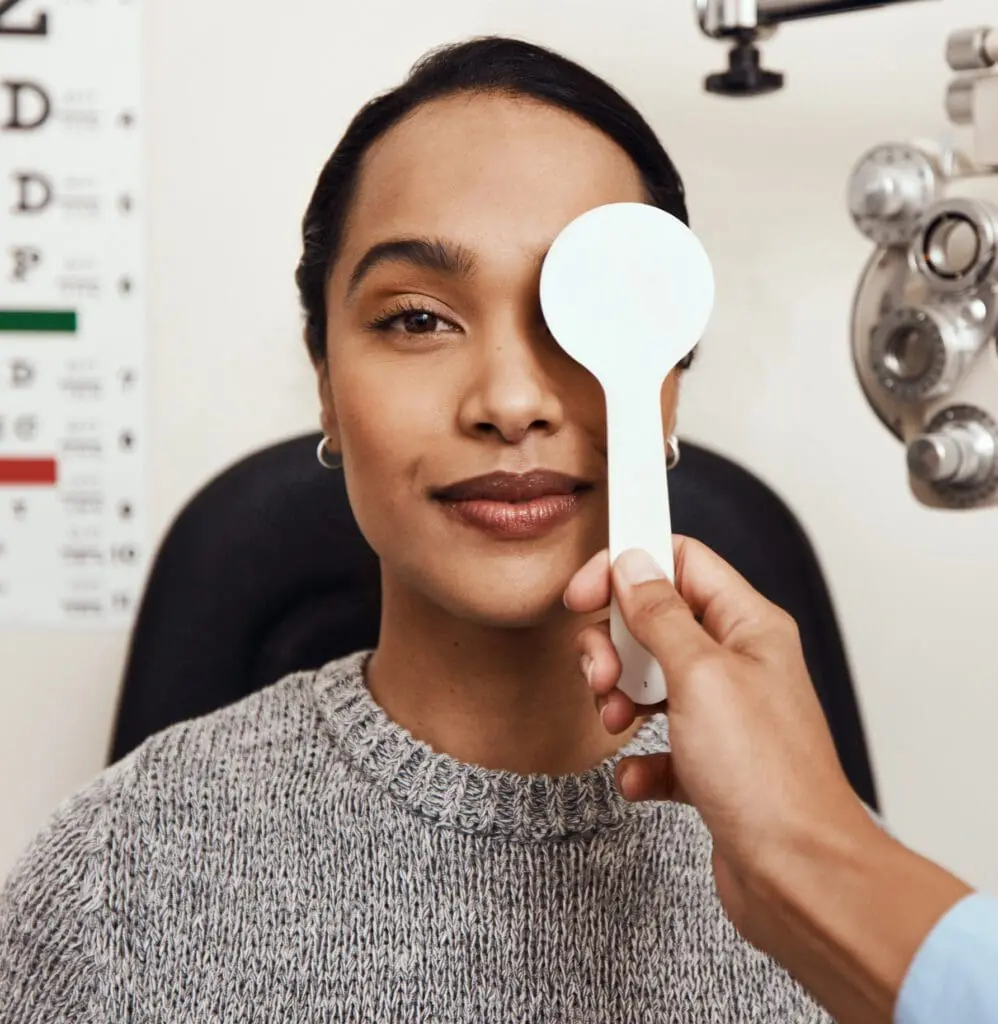Shortsight is a common refractive error where you are able to see clearly up close but struggle to see things that are far away. Other names for it include nearsightedness and the medical term, myopia. Watch the video to find out more.
Shortsightedness
To be shortsighted, otherwise known as myopia, is a relatively common eye condition that causes distance vision to appear out of focus, while close objects can be seen clearly.

The Meaning of Shortsight
What Causes Nearsightedness?
Patients who are nearsighted have a steep cornea and/or a long eye (right). This means that the point of focus falls short of the retina and the patient will struggle to focus on things in the distance. The longer the eye and/or steeper the cornea the higher the level of refractive error.
This can be caused by a plethora of possible reasons, but most commonly through an excessive use of phones, tablets and computers, while it can also be inherited.

Symptoms of Shortsight (myopia)
Impaired distance vision is the most noticeable symptom for those who are myopic. Some objects in the distance may appear blurry, which may cause a person to squint to help see more accurately. Commonly for adults, the ability to see clearly while driving is hindered. You may also suffer from tired eyes and headaches.
Meet Our Consultants



FAQs
Yes, both are terms for myopia, the refractive error that makes objects that are far away appear blurry, making activities like driving difficult.
Options for nearsightedness correction include laser eye surgery, implantable contact lenses and lens replacement surgery. Book a consultation today to explore your treatment options.
Yes, you can be but not in the same eye. So your left eye could be one while your right eye could be the other.
Yes and no. Without corrective treatment, you will rely on glasses or contact lenses indefinitely. However, if you undergo a corrective procedure to correct the refractive error, then you will no longer rely on glasses or contact lenses for nearsightedness.
